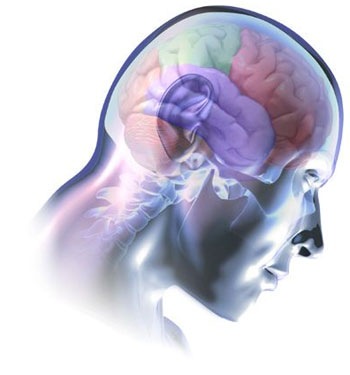 A neurological disorder is any disorder of the body nervous system. Structural, biochemical or electrical abnormalities in the brain, spinal cord or other nerves can result in a range of symptoms. Examples of symptoms include paralysis, muscle weakness, poor coordination, loss of sensation, seizures, confusion, pain and altered levels of consciousness. There are many recognized neurological disorders, some relatively common, but many rare. They may be assessed by neurological examination, and studied and treated within the specialities of neurology and clinical neuropsychology.
A neurological disorder is any disorder of the body nervous system. Structural, biochemical or electrical abnormalities in the brain, spinal cord or other nerves can result in a range of symptoms. Examples of symptoms include paralysis, muscle weakness, poor coordination, loss of sensation, seizures, confusion, pain and altered levels of consciousness. There are many recognized neurological disorders, some relatively common, but many rare. They may be assessed by neurological examination, and studied and treated within the specialities of neurology and clinical neuropsychology.
The brain, spinal cord, and nerves make up the nervous system. Together they control all the workings of the body. When something goes wrong with a part of your nervous system, you can have trouble moving, speaking, swallowing, breathing, or learning. You can also have problems with your memory, senses, or mood. There are more than 600 neurologic diseases.
Major types include:
- Diseases caused by faulty genes, such as Huntington’s disease and muscular dystrophy,
- Problems with the way the nervous system develops, such as spina bifida,
- Degenerative diseases, where nerve cells are damaged or die, such as Parkinson’s disease and Alzheimer’s disease,
- Diseases of the blood vessels that supply the brain, such as stroke,
- Injuries to the spinal cord and brain,
- Seizure disorders, such as epilepsy,
- Cancer, such as brain tumors,
- Infections, such as meningitis.

 CT Scan
CT Scan EEG
EEG MRI
MRI Nuclear Imaging
Nuclear Imaging